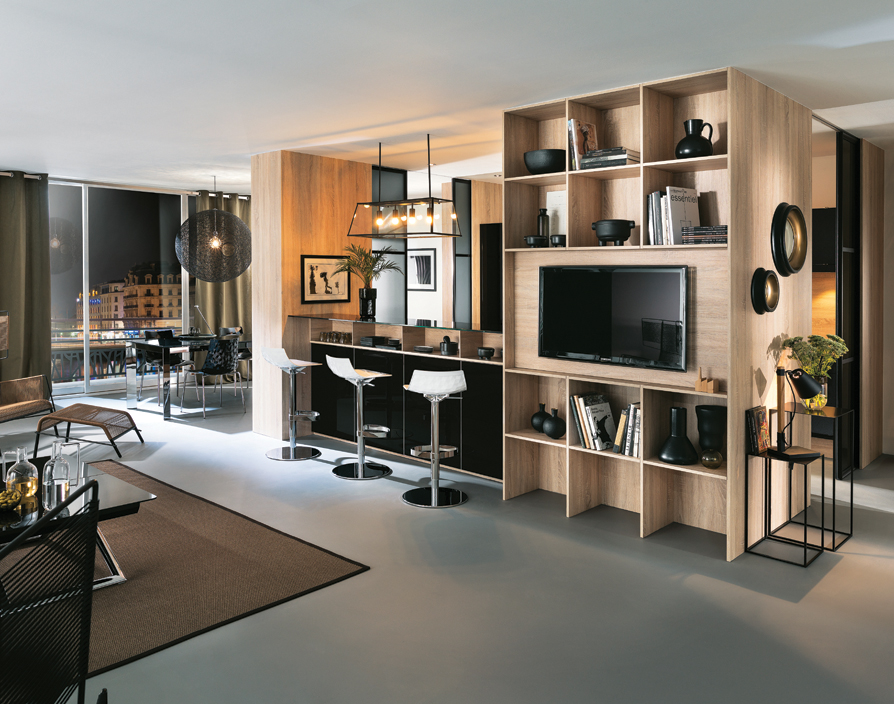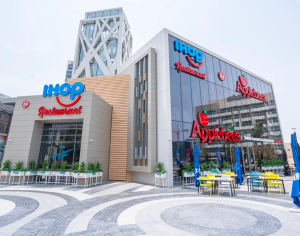Whilst convenience is great, it’s always nice to have furniture and fittings with some heritage. And Mobalpa, the kitchen and bathroom design franchise, has that in spades.
The Fournier Group – the umbrella organisation that owns Mobalpa UK – was originally created by Eugène Fournier when he founded a cabinet-making workshop in the French Alpine town of Annecy. “Originally they were doing everything in wood, so they were more craftsmen,” says Cyril Raberin, franchise director and general manager at Mobalpa UK. Fournier’s sons Marcel and Paul Fournier eventually inherited the company and, in 1948, they created the brand Mobalpa – a contraction of the French words for ‘furniture of the Alps’ – along with its bespoke wardrobe factory.”
And Mobalpa certainly created a splash in the French market. “In France – and I think in Europe – we were really the first to create fitted kitchens,” Raberin says. To start with, Mobalpa focused largely on distribution and sold through third party stockists but before long it had built up a head of steam and began to grow its own portfolio of corporate stores. “With the success of the sales side of things, we created our own exclusive network, which now stands at more than 280 stores,” he adds.
In terms of the international market, Mobalpa has typically focused on distribution, covering an impressive territory that ranges from Kazakhstan, China and Russia to the United States and Canada. “Altogether, we cover 20 countries outside the UK and we’ve got maybe 100 contract accounts,” says Raberin.
Originally, Mobalpa entered the UK market on this same basis and for the best part of three decades the majority of its contracts were held with independent retailers. But when the financial crash hit, it realised that being so reliant on independent outlets didn’t offer sufficient security. “That’s not really a long-term strategy,” Raberin says.
Mobalpa thought that establishing its own network overseas would give it a firmer footing – and franchising seemed to offer the best route to achieve this. However, it also realised that spreading its resources too thin across multiple markets would only undermine the quality of its offering. “We really needed to invest everything that we could not only to better deliver goods to our partners but also to deliver the required knowhow and experience,” Raberin says. Outside of France, its top two markets had proven to be the UK and Flemish Belgium, making these the obvious regions to focus on. “We reduced the number of targets so that we could invest heavily in these markets,” he says.
Whilst Mobalpa had been operating in the UK for some time as a distributor, some of the peculiarities of the market meant it needed to tweak its model before it was ready to franchise. “The UK is far ahead in terms of digital marketing compared to other countries so we had to change our retail methods, promotions, communications and websites,” says Raberin.
Another key difference is that, particularly in the south of UK, there tends to be more of a focus on premium products, requiring Mobalpa to place a higher focus on quality in its showrooms. “We also had to increase the quality of the way we display the kitchens and design and dress our shops,” he says.

Josh Russell
When he isn't tooling around on trains in a tux like the Daniel Craig of the Greater Anglia transport system, Russell spends his time living the glamourous life of an enterprise journalist, judging Digital Business of the Year at the National Business Awards and attending conferences like NixonMcInnes' Meaning 2013. However, like all good secret agents, Russell lives a double life - in his case, as a closet revolutionary. Social enterprise, sustainable business and collaborative practices are his true passions, something that he has had plenty of opportunity to air in his features here at Elite Franchise.

Josh Russell
When he isn't tooling around on trains in a tux like the Daniel Craig of the Greater Anglia transport system, Russell spends his time living the glamourous life of an enterprise journalist, judging Digital Business of the Year at the National Business Awards and attending conferences like NixonMcInnes' Meaning 2013. However, like all good secret agents, Russell lives a double life - in his case, as a closet revolutionary. Social enterprise, sustainable business and collaborative practices are his true passions, something that he has had plenty of opportunity to air in his features here at Elite Franchise.
































